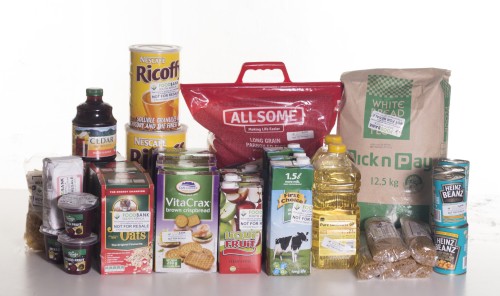By Thato Mahlangu
Government promises to deal “harshly” with people who may be suspected of stealing food parcels meant for struggling people during the lockdown.
Media and social media reports have suggested that in some parts of the country people, including government officials – councillors in particular – have been accused of stealing food parcels.
Almost two weeks ago, a Dawid Kruiper Municipality councillor was accused of stealing food parcels meant for the Leerkans community in the Northern Cape, The Citizen reported.
These reports also suggest that there is some kind of manipulation by councillors who would choose who receives the food parcels. Some have been accused of only giving parcels to their relatives and members of their constituencies, thereby sowing serious divisions within communities
On Tuesday, 21 April 2020, President Cyril Ramaphosa said the government was deeply disturbed by reports of unscrupulous people abusing the distribution of food and other assistance for corrupt ends. “We will not hesitate to ensure that those involved in such activities face the full might of the law.”
CW demands accountability
Corruption Watch (CW) said it supports the government’s efforts in assisting struggling South Africans with social and economic measures which amount to R500-billion, but said it calls for accountability.
“CW urges government to put measures in place to mitigate and reduce opportunities of corruption during this time, and also to take swift action against those engaging in corrupt activities at the expense of the most vulnerable in our communities. While our current circumstances may call for these enhanced powers, this demands increased transparency, vigilance and accountability, particularly against the backdrop of the extremely high levels of corruption that have characterised South African public life for so long,” said the organisation.
The organisation’s executive director David Lewis said people’s suspicions that the distribution of the food parcels would be flawed with corruption have been proven to be true as some government officials have been implicated in food parcel corruption scandals.
“While the South African government has been widely praised, and deservedly so, for the urgent, honest and science-based response to the virus, it must be candidly recognised that the extension of increased powers to the law enforcement community, procurement officials and elected representatives is open to abuse, and that this has proved to be the case,” Lewis said.
He said the organisation has gained considerable experience in identifying red flags for corruption and said it will continue to serve the public in this way.
“It is government’s duty to ease our task by promoting maximum transparency and by acting against transgressors,” Lewis added.
Food stealing is nothing new
The stealing of food meant for struggling citizens has been well documented and it dates back to the dawn of democracy, with political parties being accused of trying to win people’s hearts with food parcels and t-shirts during election campaigning. Local councillors would be accused of stealing and selling the food.
Entrepreneur and fashion designer Xoli Madlala who, together with a group of friends, donates to organisations and struggling families, said it was unfortunate that people are stealing food meant for those who need it most.
“I think the government should consider giving people food vouchers,” she said, adding that the vouchers, when used correctly, can be of convenience as people will buy what they need when they need it.
Listen here: https://soundcloud.com/thato-mahlangu-632772388/food-parcel-corruption
Kwa-Mhlanga resident Mayibongwe Mahlangu said: “Corrupt government officials who steal food parcels that are meant for the poor should be dismissed from their positions with immediate effect and also be arrested, fined or be asked to do some community service for their dishonesty.”

